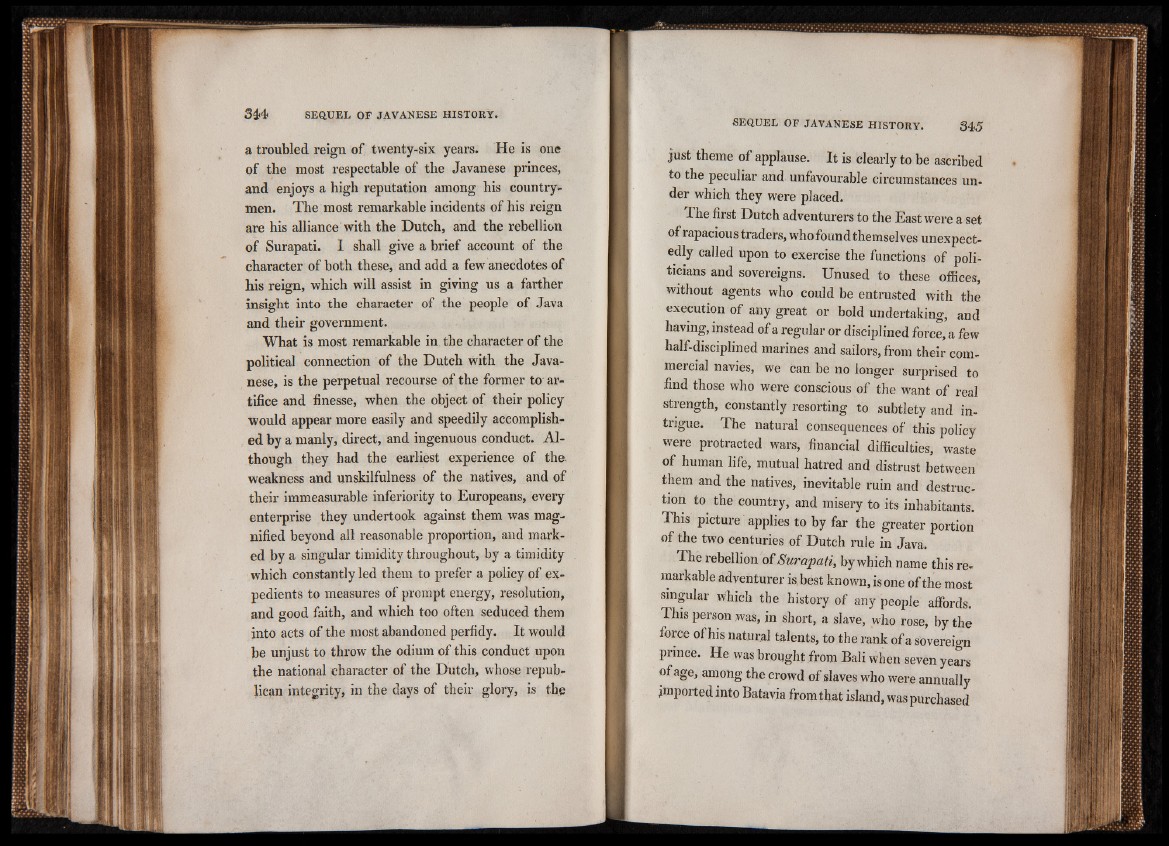
a troubled reign of twenty-six years. He is one
of the most respectable of the Javanese princes,
and enjoys a high reputation among his country*
men. The most remarkable incidents of his reign
are his alliance with the Dutch, and the rebellion
of Surapati. I shall give a brief account of the
character of both these, and add a few anecdotes of
his reign, which will assist in giving us a farther
insight into the character of the people of Java
and their government.
What is most remarkable in the character of the
political connection of the Dutch with the Javanese,
is the perpetual recourse of the former to artifice
and finesse, when the object of their policy
would appear more easily and speedily accomplished
by a manly, direct, and ingenuous conduct. Although
they had the earliest experience of the.
weakness and unskilfulness of the natives, and of
their immeasurable inferiority to Europeans, every
enterprise they undertook against them was magnified
beyond all reasonable proportion, and marked
by a singular timidity throughout, by a timidity
which constantly led them to prefer a policy of expedients
to measures of prompt energy, resolution,
and good faith, and which too often seduced them
into acts of the most abandoned perfidy. It would
be unjust to throw the odium of this conduct upon
the national character of the Dutch, whose republican
integrity, in the days of their glory, is the
just theme of applause. It is clearly to be ascribed
to the peculiar and unfavourable circumstances under
which they were placed.
The first Dutch adventurers to the East were a set
of rapacious traders, who found themselves unexpectedly
called upon to exercise the functions of politicians
and sovereigns. Unused to these offices,
without agents who could be entrusted with the
execution of any great or bold undertaking, and
having, instead of a regular or disciplined force, a few
half-disciplined marines and sailors, from their commercial
navies, wo can be no longer surprised to
find those who were conscious of the want of real
strength, constantly resorting to subtlety and intrigue.
The natural consequences of this policy
were protracted wars, financial difficulties, waste
of human life, mutual hatred and distrust between
them and the natives, inevitable ruin and destruction
to the country, and misery to its inhabitants.
This picture applies to by far the greater portion
of the two centuries of Dutch rule in Java.
The rebellion of Surapati, by which name this remarkable
adventurer is,best known, isone of the most
singular which the history of any people affords.
This person was, in short, a slave, who rose, by the
force of his natural talents, to the rank of a sovereign
prince. He was brought from Bali when seven years
of age, among the crowd of slaves who were annually
imported into Batavia from that island, was purchased